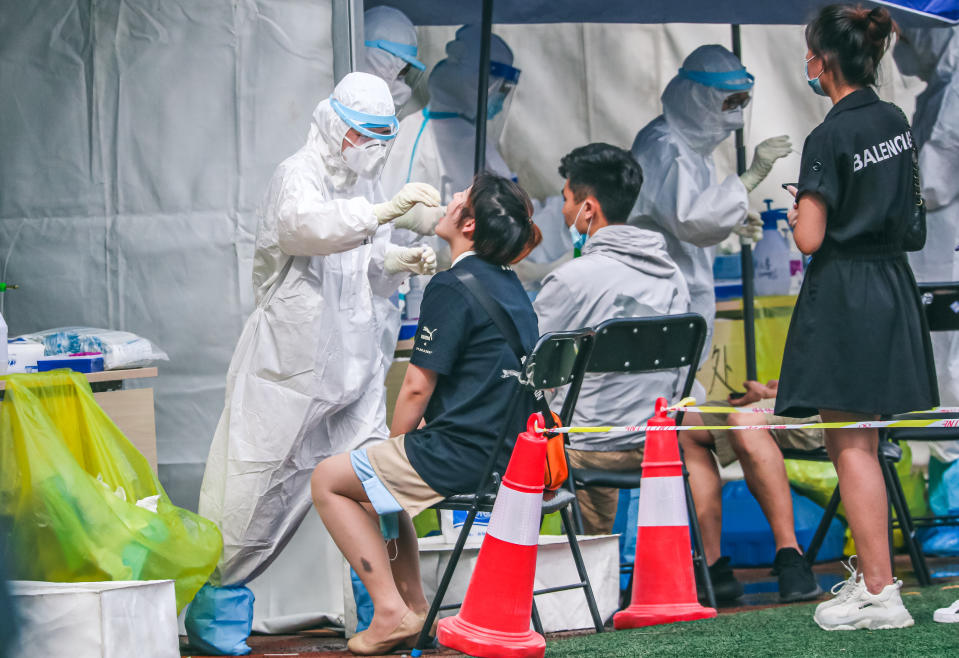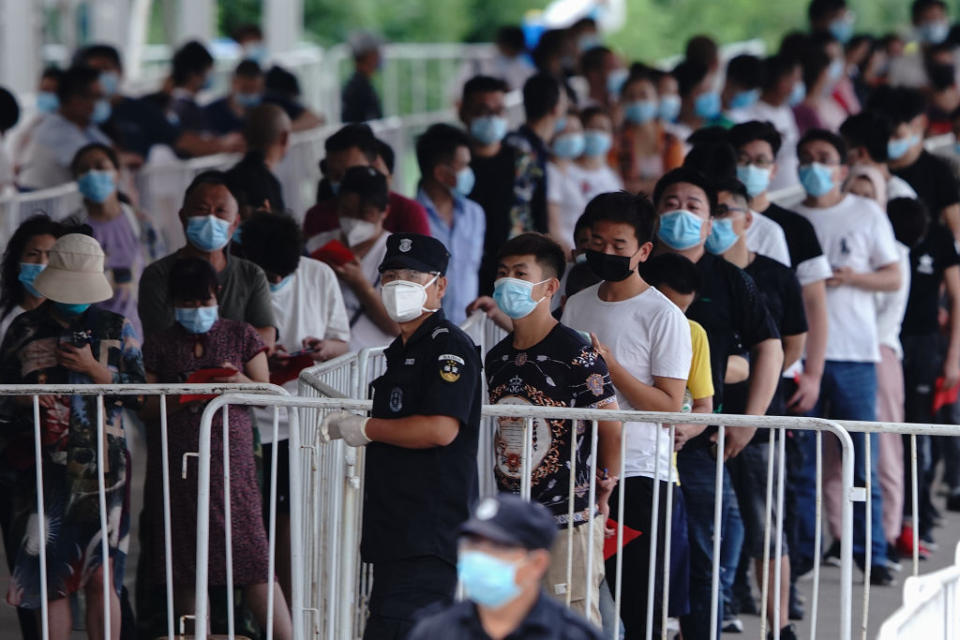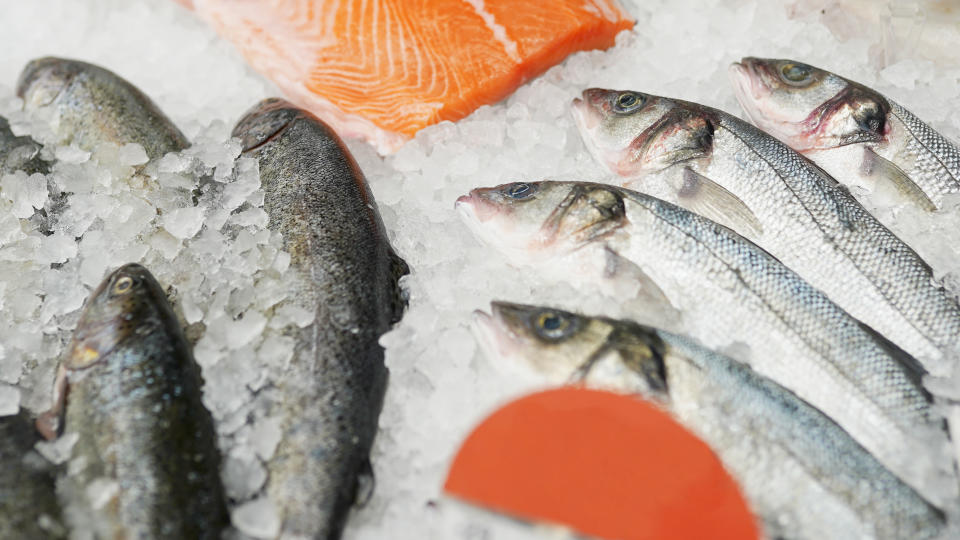Frozen food warning as city's fears of 'second wave' escalate
An expert has pointed to frozen seafood as the source of contamination for a new outbreak of the coronavirus in the Chinese capital of Beijing.
More than 150 people in Beijing have been infected with the coronavirus since last week, marking China’s biggest resurgence of the the virus since the initial outbreak was brought under control in March.
The outbreak has been linked to Beijing’s Xinfadi Market.
One patient, a 22-year-old man, had no travel history leading up to his diagnosis or contact with a confirmed or suspected case, state-run newspaper Global Times reported.

The unknown source of infection reportedly triggered fears of a second wave of the virus, with people expressing their concern online.
However, the 22-year-old did work in a hotel in the North China’s Tianjin Municipality, where he washed dishes and occasionally cleaned frozen seafood.
Virologist Yang Zhanqiu told the Global Times it was possible the patient could have contracted the virus through the frozen food, adding it was possible COVID-19 could survive for quite some time in wet, cold environments.
"For example, at -20C to -30C environment, the virus could live for months or even years," Dr Yang told the newspaper.
"If yes, the frozen seafood touched by the Tianjin patient could be of the same batch, with those shipped to Beijing Xinfadi Market.
“And it is safe to say that this batch of seafood, or the ice used to freeze it, was contaminated by the virus."
Dr Yang also told the Global Times it is possible the virus had the same origin as the original outbreak of the disease in Wuhan.
The first major cluster of infections was traced to the Huanan seafood market in Wuhan, where bats and other wild animals were believed to be on sale.
Dr Yang warned people to be cautious when consuming frozen food and to not eat raw food.

Urgent call to improve hygiene standards of markets
Beijing reported 21 new cases of COVID-19 on Thursday, down from 31 on Wednesday.
City officials said close contacts of market workers, visitors and other connections were being traced to locate all possible cases as quickly as possible, with testing and prevention measures being taken.
Low standards of hygiene in China's wholesale food markets and vulnerabilities in its food supply chain need to be urgently addressed after a new coronavirus outbreak in Beijing, a leading body of the ruling Communist Party says.

The Communist Party’s top disciplinary body said on Thursday the outbreak linked to the Xinfadi Market underlined the urgent need to improve sanitation standards and minimise health risks at markets.
"The epidemic is a mirror that not only reflects the dirty and messy aspects of wholesale markets, but also their low level management conditions," the Central Commission for Discipline Inspection (CCDI) said in a report published on its website on Wednesday.
China has promised to ban the trade and consumption and wildlife in a bid to minimise disease transmission, though the use of wild animal products in traditional medicine will still be permitted.
With Reuters
Do you have a story tip? Email: newsroomau@yahoonews.com.
You can also follow us on Facebook, Instagram and Twitter and download the Yahoo News app from the App Store or Google Play.




